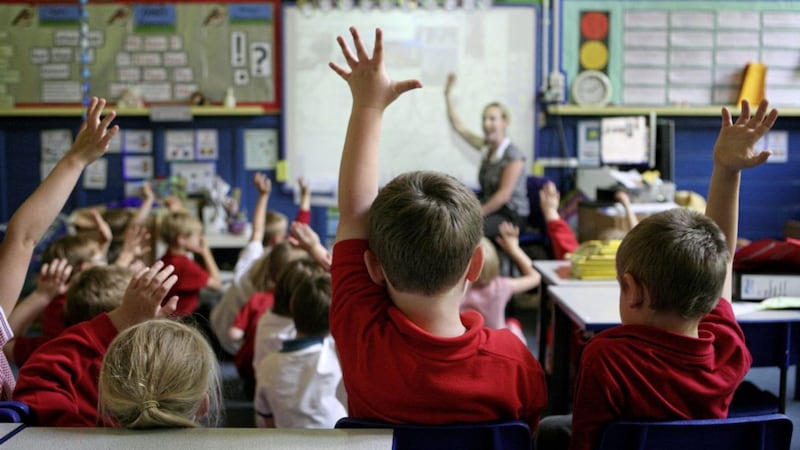Despite being out of primary school teaching for a decade and a half, the last day of June never fails to stir in me a long-conditioned response – a little frisson of something between relief and regret.
There’s nothing so forlorn as the sight and sound of an empty school, recently vacated for the summer holidays.
The hollow ring of footsteps in deserted corridors, the mathematically unnatural tidiness of empty classrooms, the still tangible atmosphere compounded of milk, gym shoes and small hot bodies.
While its erstwhile population take to the streets and parks and torture their parents for the next eight weeks, we, the teachers, wander around picking up the debris of their presence. There’s Robert’s lost book which must’ve slipped down behind the radiator weeks ago. Here are Michael’s missing Star Wars figures all mixed up in the tray of plastic dinosaurs and Tracey’s forgotten painting still stuck to the cupboard door. I shall miss those three. I shall miss them all.
The school year’s a short one. It’s remarkable how attitudes change in a few brief months. I daresay most teachers would secretly confess to positively disliking their new class. It’s nothing personal. We’re still emotionally attached to the previous one. The relationship has to be built from scratch every year.
I recall the previous September when they came to me. An unprepossessing-looking bunch all told. A dozen timorous little girls and a veritable swarm of energetic noisy boys whom I despaired of ever getting to sit still let alone learn anything. And so immature – such babies really. I’m not aware at what point interest and affection become engaged, but it never failed to amaze me annually how deeply involved one becomes with children, their developing strengths, their insecurities, their little triumphs and tribulations – and always keeping a vigilant eye on the rivalries between the boys, the fluctuating allegiances among the girls. It’s society in microcosm with its dominant characters, its miniature divas, the confidently capable, the diffidently struggling – angels and rascals.
In every primary school class there’s a wide range of abilities and personalities, degrees of readiness to learn and willingness to learn, (the two are not necessarily synonymous). Teaching small children is a bit like the man in the circus who spins plates on sticks, perpetually dashing from one to another, steadying the wobbling ones, giving extra impetus to the stable and trying never ever to let one fall. In the audience are up to 30 sets of parents interested only in how their own child is progressing – or failing to. Regrettably, there remains a small percentage of parents who take so little interest in their child’s education that their talents remain undeveloped, their potential never realised. It’s one of the abiding joys of any teacher to meet a successful pupil years later and learn they’ve contributed in some small way to their achievement.
But back in the classroom – for a year I am ‘in loco parentis’, outranking in affection and authority even their parents. “Dad, that’s wrong. The teacher says we have to do it this way.” I urge, cajole, nurse them along. I worry constantly about them. A few resistant candidates I have to haul through the education system, muttering between gritted teeth, “Some day you’ll thank me for this.” They rarely do.
I wonder will next year’s teacher love and understand them as well as I do? Probably not. How will he or she know how much shy little Fiona has matured and come out of herself? How calm and responsible Gary has become after swinging from the light-fittings for most of the first term? I must remember to warn him/her about Jimmy’s stubbornness and Cathy, who fizzes with undirected energy and has to be sat upon (metaphorically speaking!) from time to time.
For a year I’ve been the most important person in their life. Suddenly, the bond is broken. Come the new autumn term they’ll greet me with indifference in the corridor, their allegiance given to someone new. Two years hence they’ll barely acknowledge me at all. And that’s as it should be…








